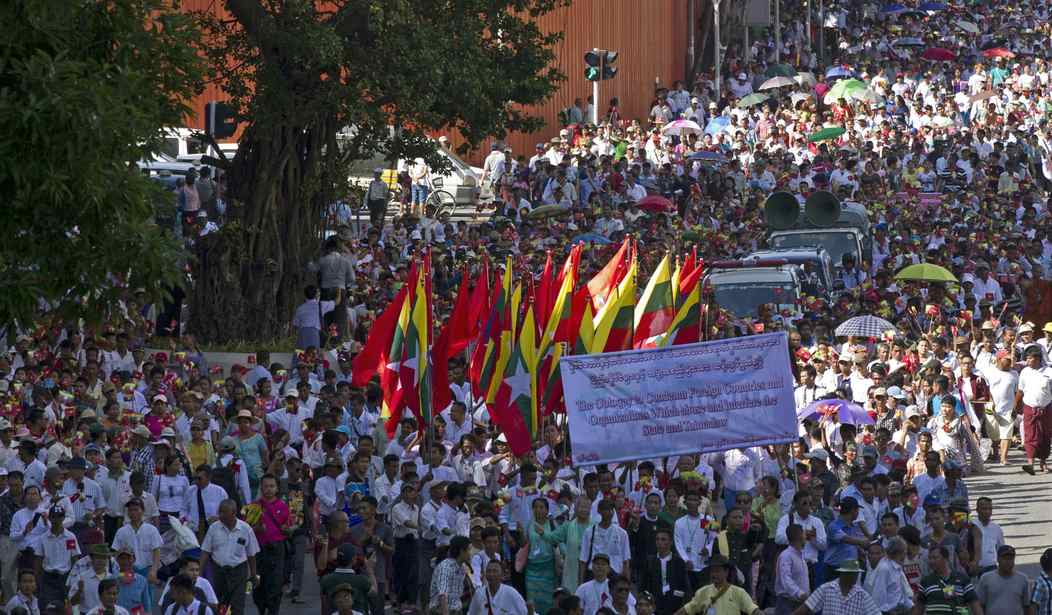Myanmar police, reinforced by soldiers, used live rounds to quell protests across the country, according to the United Nations.
“Police and military forces have confronted peaceful demonstrations, using lethal force and less-than-lethal force that – according to credible information received by the UN Human Rights Office – has left at least 18 people dead and over 30 wounded,” the U.N. human rights office said, Reuters reported.
The protesters were demonstrating against the military junta that had engineered a coup against the elected government. The party of Suu Kyi, 75, who spent nearly 15 years under house arrest, was elected last November. The military alleged fraud and a coup was staged on February 1 when Kyi was arrested. She is awaiting trial on charges that she illegally imported 6 walkie-talkies and violated coronavirus restrictions.
The protests have been growing as arrests of prominent democracy activists continue. The crackdown using live ammunition represents a serious escalation by the military as they try to keep order.
Among at least five killed in Yangon was internet network engineer Nyi Nyi Aung Htet Naing, who a day earlier had posted on Facebook about his concern at the growing crackdown, medics said.
Teacher Tin New Yee died after police swooped to disperse a teachers’ protest with stun grenades, sending the crowd fleeing, her daughter and a fellow teacher said.
The junta warned foreign embassies and UN agencies not to talk to groups organizing the protests. Otherwise, the international response to the crisis has been less than outraged. The U.S. has imposed some sanctions on members of the junta but the kind of broad economic sanctions that might cripple the military are missing.
Myanmar state television reported on Saturday that Kyaw Moe Tun had been sacked as the country’s UN ambassador after he denounced the coup, publicly broke with the junta and urged the world to support the CRPH in a speech at the general assembly.
Sa Sa, the CRPH’s UN envoy appointed last week, told the FT that the CRPH planned to form its own “interim government” inside Myanmar in the coming weeks and seek recognition from the US, UK and UN.
South-east Asian governments, led by Indonesia, are seeking to defuse the crisis and last week held talks in Bangkok with Wunna Maung Lwin, the junta’s foreign minister. The meeting infuriated supporters of the NLD and Aung San Suu Kyi, who is under arrest and facing criminal charges.
Suu Kyi is not without blood on her hands. The Nobel Peace Prize winner has been accused of brutally suppressing the 2 million Rohingya Muslims who live in Myanmar. She faces charges of ethnic cleansing, rape, and genocide. That may be one reason why the international response has been somewhat muted.
The protesters may have right on their side but the military has the guns. As we’ve seen elsewhere — China, Iran, Russia — if the military proves a willingness to use deadly force to stop the protests, support for the protests melts away and order is eventually restored.
Perhaps the only question remaining for democracy advocates in Myanmar is how high the body count will go.










Join the conversation as a VIP Member